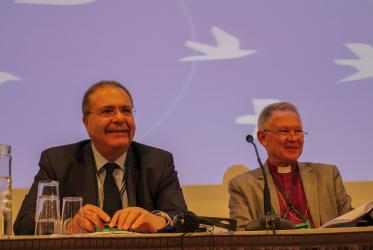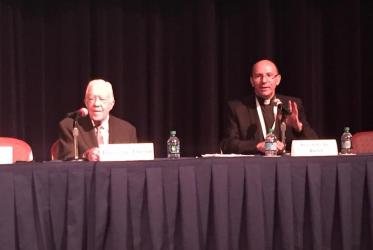Displaying 121 - 140 of 190
New Executive Committee members elected in Trondheim
28 June 2016
Is there hope for the Middle East?
25 June 2016
International affairs facilitator reflects on pilgrimage
31 March 2016
Fleeing from – rather than to – a place
10 February 2016
Symposium focuses on religion, violence, extremism
04 February 2016
WCC urges support for social media campaign to end Syria crisis
25 January 2016
One refugee’s story: from Syria to France
07 January 2016
Armed forces no solution, says Evangelical Church in Germany
10 December 2015
“European solidarity must be strengthened”
29 October 2015





